Education in national budget: A dialogue of the deaf

Commenting on the education allocation in the proposed national budget for the 2023-24 fiscal year in a previous column in this daily, this author said, "Bangladesh's education system needs much larger public investment, but the desired results can be achieved only when the priorities, programmes and strategies for effective action are in place and backed up by high level political decisions." Following the presentation of the budget, and during pre-budget public discussions, the arguments and pleas have been voiced by civil society bodies, academics, activists, and concerned citizens. They have challenged the decision-makers to match the government rhetoric about prioritising education with action in funding and more result-focused and accountable use of resources.
The Centre for Policy Dialogue (CPD) and the Citizens' Platform for SDG hosted a discussion titled "National budgets in Bangladesh: myths and realities" on June 7 as the budget deliberation began in parliament. In presenting his observations, CPD Distinguished Fellow Debapriya Bhattacharya pointed at the overall inconsistencies between the "myths" expressed in expectations about resources, investments, GDP growth, and curbing inflation, and the "realities" of the current and likely economic scenario affecting these parameters. He reiterated that public resources for education were utterly inadequate to achieve the objectives of enhancing skills and capabilities of the next generation for an aspiring higher-middle-income "smart" Bangladesh. The global median value for government expenditure on education is 4.45 percent of GDP; In Bangladesh, it was only 1.83 percent in FY2023 and is even lower at 1.76 percent in FY2024.
Campaign for Popular Education (CAMPE), the civil society forum for education, presented its appeal to the government earlier this year, and again since the budget session began in parliament. Among other things, it emphasised the need for directing larger resources to recovery and remedial actions to overcome learning losses and the wide gaps in students' learning outcomes between where they should be and where the majority are. It pleaded for a comprehensive education sector plan, decentralised education governance with accountability, regulatory mechanisms to facilitate an effective role of non-state actors in education, and commitment of resources to match the goals.
The education decision-makers have a narrative that largely denies any serious deficiency in the system and would like to continue with the status quo with only incremental changes. The researchers, academics and the active civil society, drawing on national and global information and analyses, see the persistence – and aggravation as a consequence of the pandemic – of the serious issues of poor learning outcomes and widening inequalities. The result is the absence of meaningful communication between policy and decision-makers and the rest.
A Daily Star report on June 17, flagging the low budget for education, saw a pattern in the present government's stand regarding the education budget. Since 2009-10, when the Awami League-led 14-party alliance placed its first budget, the sector's allocation has hovered around two percent of GDP, with a small spike in 2016-17 when it went up to 2.49 percent. However, since then, "it has fallen gradually over the past seven years and hit rock bottom in the budget for the 2023-24 fiscal."
The proposed allocation contradicted the optimistic promise in the budget speech of Finance Minister AHM Mustafa Kamal. "Today's children will make our dream of a developed-prosperous-smart Bangladesh a reality. Therefore, we want to enable students to face all upcoming challenges mainly arising from the Fourth Industrial Revolution and climate change, and move forward. Our aim is to provide science-based, technology-based, skill-enhancing, and creativity-supportive education that will instil in them the spirit of delivering services …" Educators found in the budget only a promise to continue with what has been going on, and little of any creative initiatives or a recognition of the setback in education caused by the pandemic.
The education budget discussion – for that matter, a public discussion about the critical issues of quality, relevance, inequality, and exclusion in education – has become a dialogue of the deaf. The education decision-makers have a narrative that largely denies any serious deficiency in the system and would like to continue with the status quo with only incremental changes. The researchers, academics and the active civil society, drawing on national and global information and analyses, see the persistence – and aggravation as a consequence of the pandemic – of the serious issues of poor learning outcomes and widening inequalities. The result is the absence of meaningful communication between policy and decision-makers and the rest.
The parallel narratives without points of intersection are reflected in the absence of receptivity to the views and concerns of those other than the authorities in public resource allocations and other decisions about strategies and priorities. Given the nature of the budget-making and approval process, it is unlikely that there will be any significant change in education provisions in the new budget through a genuine debate in parliament.
People's right to authorise and scrutinise the government's annual expenditure, exercised through their representatives in parliament, is hardly the way it works in Bangladesh. A 2012 review of the representation and accountability role of Bangladesh Parliament by Rounaq Jahan and Inge Amundsen remains valid today. It said, "The parliament's overall performance in Bangladesh in terms of its core functions such as legislation, budget scrutiny and oversight lags far behind citizens' expectations and global standards." It went on, "Debate on legislation, and particularly on the budget, is far from rigorous. The budget is not referred to committees… scrutiny and oversight of the government's actions remain inadequate to the task of establishing accountability."
The budget is expected to be passed on June 26 before the parliament recesses for Eid holidays. It is likely to be adopted without any significant change in the objectives and amounts of the proposed allocations. How can the dialogue of the deaf be transformed into a meaningful discourse among the stakeholders that would take on the critical challenges we face, but from which many would like to turn their head away? Perhaps a way would be to appoint a high-level permanent education commission to guide the effort, as anticipated in the Education Policy, 2010, provided that narrow partisan thinking can be forsaken in forming the commission and it is encouraged to be objective and transparent.
Dr Manzoor Ahmed is professor emeritus at Brac University, chair of the Bangladesh Early Childhood Network (BEN), and vice-chair of Campaign for Popular Education (CAMPE). Views expressed in this article are the author's own.


 For all latest news, follow The Daily Star's Google News channel.
For all latest news, follow The Daily Star's Google News channel. 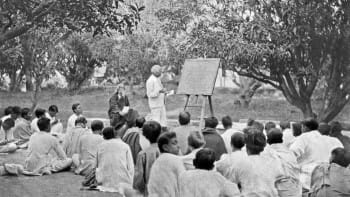
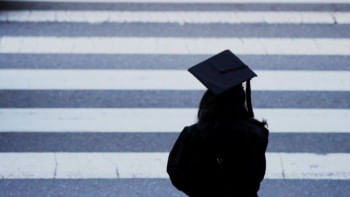



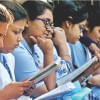
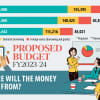

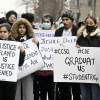



Comments